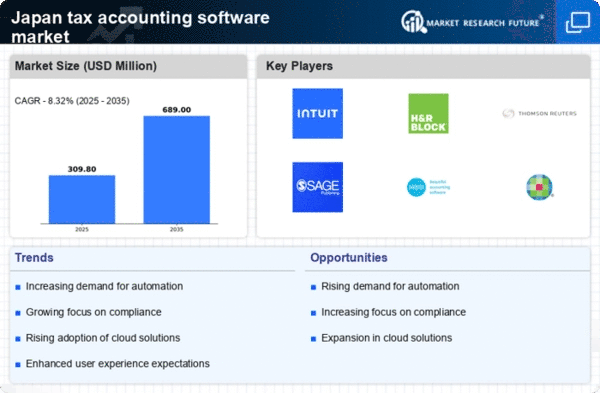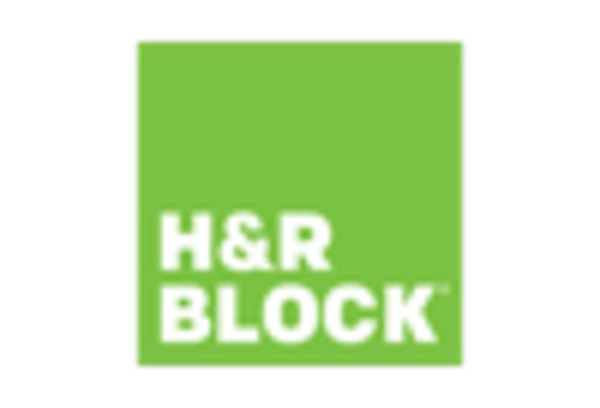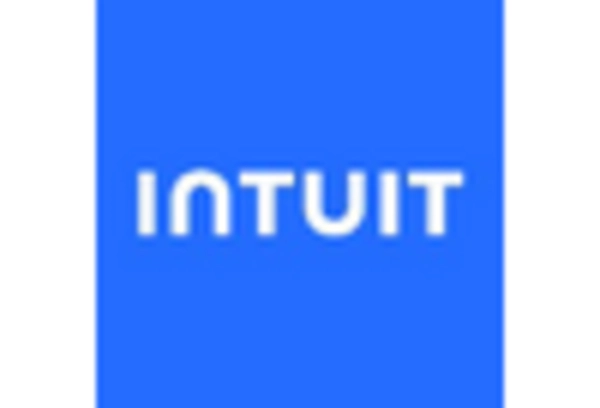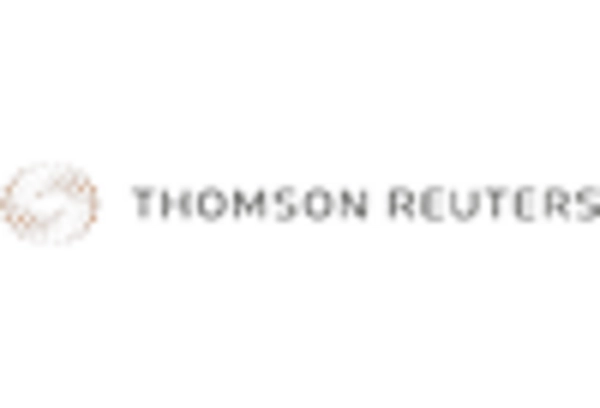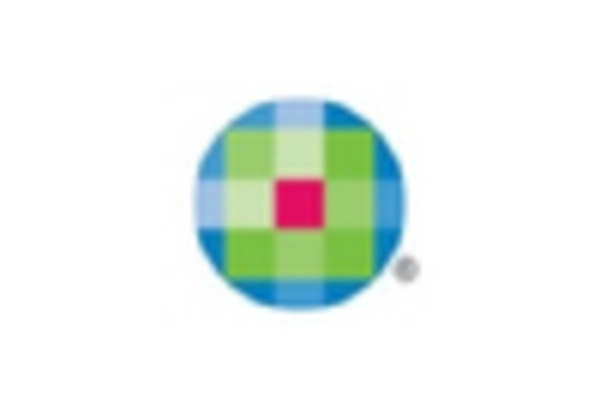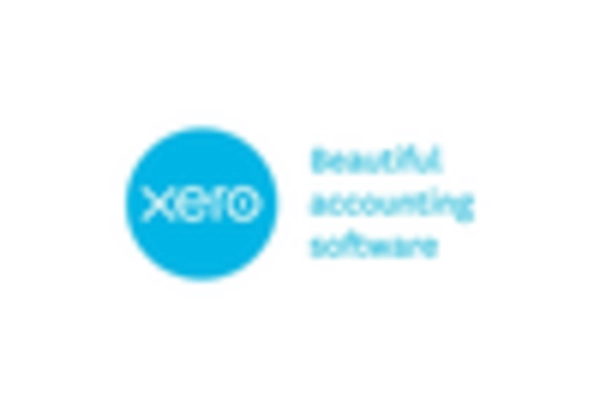Growing Demand for Automation
Automation is becoming a crucial factor in the tax accounting-software market. Businesses in Japan are increasingly looking to streamline their tax processes to enhance efficiency and reduce human error. The demand for automated solutions is projected to rise by 40% in the next few years, as companies recognize the benefits of automation in tax preparation and filing. This trend is likely to drive innovation within the tax accounting-software market, as providers develop more sophisticated tools that integrate automation features, thereby improving accuracy and saving time for users.
Increased Focus on Data Security
Data security concerns are becoming increasingly prominent in the tax accounting-software market. With the rise in cyber threats, businesses in Japan are prioritizing secure software solutions to protect sensitive financial information. It is estimated that 55% of companies will seek tax accounting software with enhanced security features by 2025. This focus on data protection is likely to drive demand for software that offers robust security measures, such as encryption and secure cloud storage. As a result, the tax accounting-software market will evolve, with providers emphasizing security as a key selling point..
Rising Complexity of Tax Regulations
The increasing complexity of tax regulations in Japan is a primary driver for the tax accounting-software market. As the government introduces new tax laws and amendments, businesses face challenges in compliance. This complexity necessitates sophisticated software solutions that can adapt to changing regulations. In 2025, it is estimated that approximately 70% of companies in Japan will require advanced tax accounting software to navigate these complexities effectively. the tax accounting-software market is positioned to grow as firms seek reliable tools to ensure compliance. This growth minimizes risks associated with tax liabilities..
Shift Towards Digital Transformation
The ongoing digital transformation across various sectors in Japan is significantly impacting the tax accounting-software market. As organizations embrace digital tools, there is a growing need for software that can seamlessly integrate with existing systems. In 2025, it is anticipated that over 60% of businesses will prioritize digital solutions for their tax accounting needs. This shift not only enhances operational efficiency but also allows for better data management and analysis. Consequently, the tax accounting-software market is likely to expand as firms invest in digital solutions to remain competitive in an increasingly tech-driven environment.
Expansion of E-commerce and Remote Work
The expansion of e-commerce and the rise of remote work are influencing the tax accounting-software market. As more businesses operate online and employees work from various locations, there is a growing need for software that can accommodate these changes. In 2025, it is projected that 50% of small to medium-sized enterprises in Japan will require tax accounting solutions that support remote access and e-commerce transactions. This trend is likely to drive innovation in the market, as software providers develop solutions tailored to the unique needs of businesses operating in a digital landscape.


